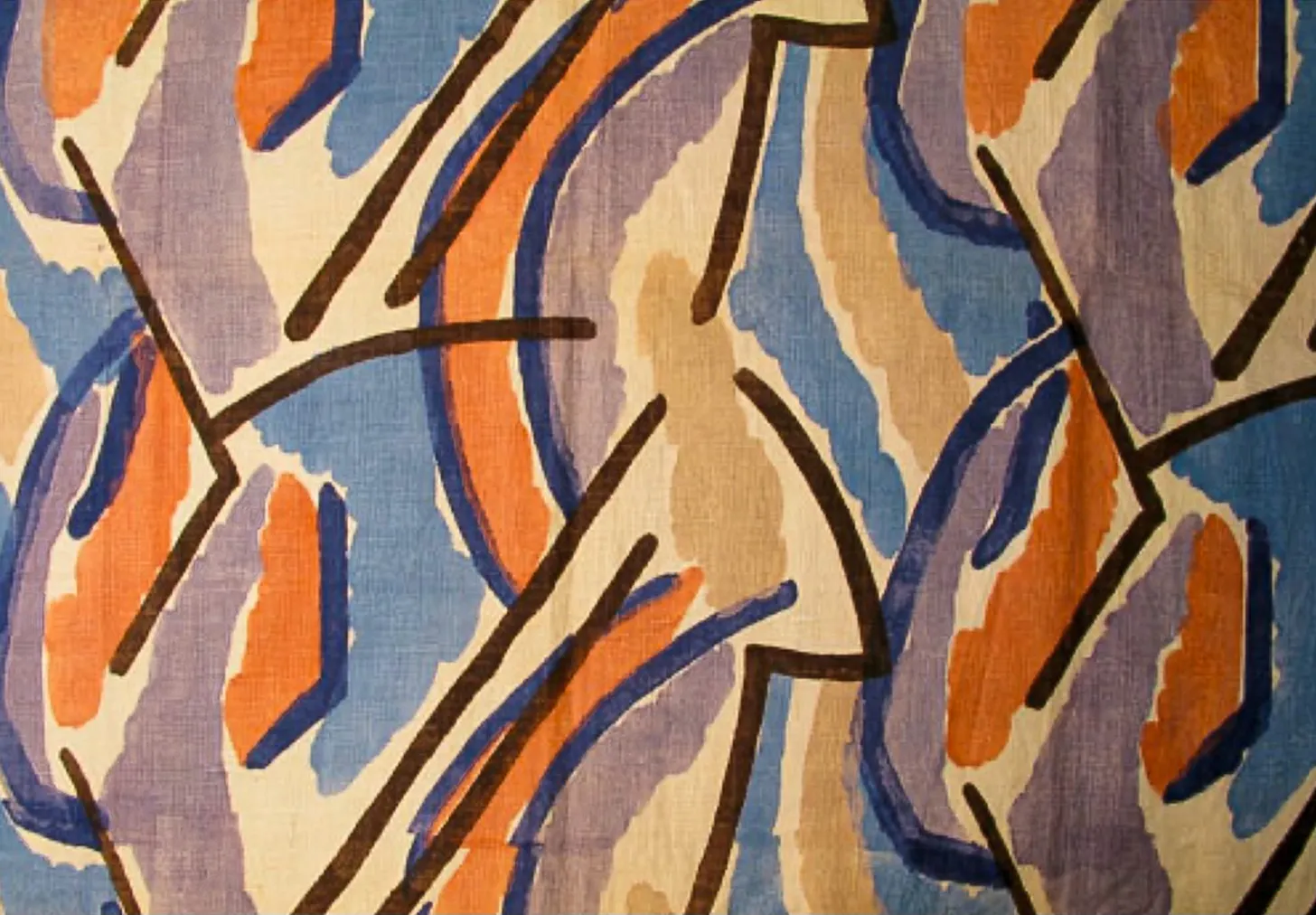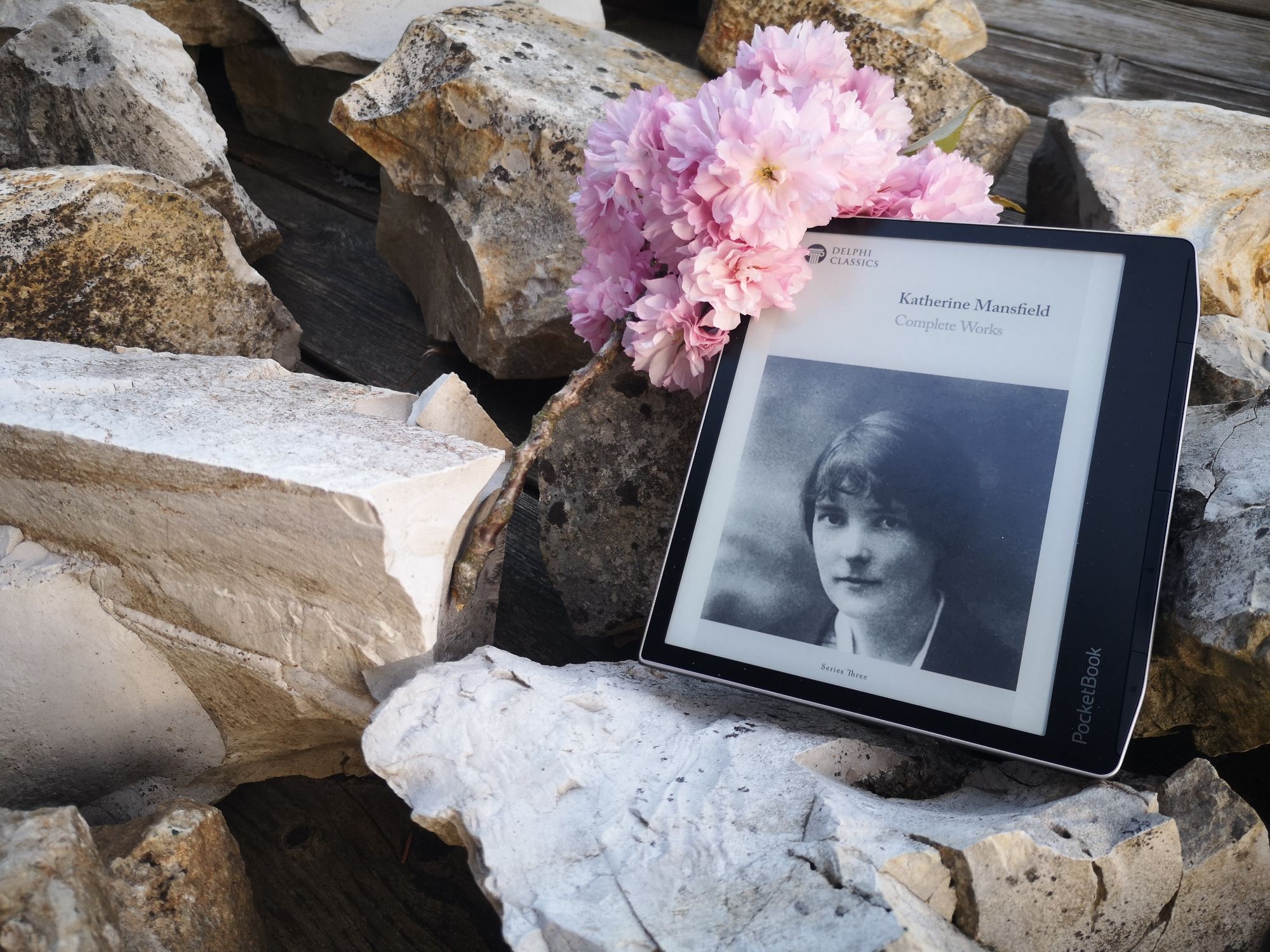I discovered Katherine Mansfield about 4 years ago, as I was studying Modernism for my master’s degree. I had not heard of her before, though, as we were told in class, she was supposed to be as big as Woolf, Joyce or Proust in matters of Modernism. Reading through her short stories, I could very well see that for myself. Her acute and subtle observations, the flowing indirect speech and making a character seem like a real person in just a few pages won me over.
There is a big deal about Katherine Mansfield, and she should also be made more of a big deal of than she currently is. Everyone knows or at least has heard of Woolf, Proust and Joyce, and Mansfield’s fiction sits in a place right up there with theirs. This is a series of 4 blog posts where my literary friend, Gertrud, and I will show what’s so special about her fiction and why everyone calling themselves a reader of literature should pick up a Mansfield short story right now. First, I will draw some general characteristics of her writing, then Gertrud will write about the lasting impression Katherine Mansfield left on her. Next, I will go into some detail about the dark side of her stories and finally, I will read some of her letters which show her mind at work. The posts are planned to go in parallel with the Literature Cambridge online course on Katherine Mansfield.
katherine mansfield’s life, cut short
Katherine Mansfield was born in 1888 in New Zealand and was a rebel all her life. She went against everything Edwardian society taught young girls. She was a wanderer and a Boehme of Europe, a writer of short stories who published her fiction in magazines for a living, she practiced free life and free love, and developed her own form of short story writing, under the influence of the London Bloomsbury circle. In 1911 she published her first volume of short stories, In a German Pension, which she later described as a “most inferior book”.
Over the years Mansfield perfected her form of short story writing. Her most celebrated pieces, such as ‘The Garden Party’, ‘Bliss’, or ‘The Daughters of the Late Colonel’, live on subtle psychological insights, vivid descriptions, and innovative narrative techniques. But saying that Katherine Mansfield was a writer of short stories makes it sound so poor. She was a voracious reader, publishing sometimes up to three reviews a week in the literary magazine Athenaeum. She wrote also poetry, where she continues exploring the fleeting nature of existence. Additionally, her letters provide insights into her life, relationships, and creative process, offering readers a glimpse into the mind of this influential writer.
Mansfield’s friendship with Virginia Woolf is by now the stuff of legend. The two writers met in early 1917, but Woolf wrote her first impressions of Mansfield in her diary only later, in the autumn of the same year. Her feelings toward Mansfield were quite mixed. Woolf extremely disliked Mansfield’s perfume, but admitted she was a person she could eventually warm up to. Woolf published Mansfield’s sketched narrative “Prelude” in October 1918, even though she wasn’t absolutely convinced of Mansfield’s writing. In 1920 Mansfield left London in search of a cure for her worsening tuberculosis, and the relationship with Woolf turned sporadic. Woolf never got enthusiastic responses to her intimate letters and was finally left without her friend in January 1923, when Mansfield died of tuberculosis, at the age of 34.
beginnings and endings
I can’t say that ‘The Daughters of the Late Colonel’ is the best story Katherine Mansfield ever wrote, because I haven’t read all of them. But after Gerri Kimber’s lecture for the Literature Cambridge course, I can say that this one is among my number one stories. It’s ridiculous I have several number ones, I know. I previously wrote about the abrupt beginning of ‘The Daughters of the Late Colonel’ and said that we are thrown directly into the middle of the thing. What I didn’t realize back then was that if Katherine Mansfield’s beginnings are rough waters in a starless night, her endings pick you up, soaked and tattered, and lie you down, gently, on the beach at dawn, leaving you squinting at the rising sun. They leave you with a question.
It was only when she came out of the tunnel into the moonlight or by the sea or into a thunderstorm that she really felt herself. What did it mean? What was it she was always wanting? What did it all lead to? Now? Now?
That’s not the reader’s question. That’s Con’s question, or rather, an opening towards her own question. Con and Jug are two sisters who are mourning the death of their elderly father. Over the course of the story, it becomes clear that the old colonel was moody and unforgiving, too authoritarian with his daughters, who, under his oppression, simply can’t live, can’t be. A week after his death, music and sun come knocking, bringing life at their doorstep. But they are so used to not being, that when a moment of clarity shows itself, they are unable to rise up to it. This could be quite dramatic, I imagine. The two could be forever lost. But I see it differently. This is just the beginning of their revelatory moments. Mansfield’s endings are not endings, they are open doors.
mockery
Maybe one of the reasons why Mansfield is rather neglected in comparison to Woolf, Proust and Joyce is because her practice of Modernism invites everyone who has an open heart. While Woolf experiments with form up to the point that reading her (for the first time) is nothing less than work and for Joyce you need some sort of dictionary or guidance podcast to be able to make sense of his celebrated masterpieces, Mansfield is not bound to any of that. She says what she has to say with simple words, short sentences and tons of images. Also, she makes quite a bit of fun of “high” literary circles, writers who think big of themselves and self-absorbed upper-class people.
‘Bliss’ makes for a good example of the ridicule and mockery she submits “high” society to. Bertha Young has a wonderful day. She’s in a state of bliss, drunk on happiness for reasons she herself can’t really explain. In the evening Bertha hosts a dinner party. The guests are the Norman Knights, a couple keen on new theatre plays, Eddie Warren, an emerging poet and Pearl Fulton, a young woman whom Bertha can’t really figure out. As the evening unfolds, Bertha’s bliss is shattered, as her marriage and her friends prove to be nothing more than a façade. And what’s even worse, maybe she’s a façade herself.
Eddie Warren referring to his white socks: “‘I am so glad you like them. They seem to have got so much whiter since the moon rose.’ And he turned his lean sorrowful young face to Bertha: ‘There is a moon, you know’”
Mrs Norman Knight is sporting monkeys on her coat, but other passengers on the train don’t seem to have caught the amusement of it: “Why! Why! Why is the middle-class so stodgy – so utterly without a sense of humour! My darling monkeys so upset the train that it rose to a man and simply ate me with his eyes. Didn’t laugh – wasn’t amused – that I should have loved. No, just stared – and bored me through and through”.
voices
Sometimes the stories of Katherine Mansfield ask for two or three re-readings. Actually, now that I think of it, that’s most of the times, and for different reasons. One reason is that it’s not always clear on the first reading who’s talking to whom and who is where and what is where. OK, so many Ws. A perfect example is ‘The Wind Blows’, another one of my number ones. This is a special one because everything is jumbled up and glued together – place, time, voice, character. The narrative perspective is playful and the question as to when is “now” is left open.
‘For heaven’s sake keep the front door shut! Go round to the back’, shouts someone. And then she hears Bogey:
‘Mother, you’re wanted on the telephone. Telephone, Mother. It’s the butcher’
How hideous life is – revolting, simply revolting… And now her hat-elastic’s snapped. Of course it would. She’ll wear her old tam and slip out the back way. But Mother has seen.
Matilda has a piano lesson on a windy day, when sounds seem to fly through the air, carried by the endless and bothersome wind. So do memories and hopes. As we reach the end of the story, we are left wondering if the piano lesson took place in the past and Matilda thinks back on it, or the future Matilda sailing away from her home town is a hope for the present Matilda, hopelessly in love with her piano teacher. Both. Neither. Anything is possible. Shreds of bodiless voices hit Matilda’s consciousness as she flows through the day, in search of her past, or her future.
In this first post of the Katherine Mansfield mini-series I tried to draw your attention to some characteristics of her writing which might appeal to you. Her stories offer problems and questions you are meant to answer for yourself. They criticize social ignorance and people who are too full of themselves. They are real and loud and put characters in an environment which lives a life of its own. They are human, sometimes contradictory and always complete. If that’s not a good reason to go read ‘The Daughters of the Late Colonel’, ‘Bliss’ or ‘The Wind Blows’ right now, I don’t know what is.





your thoughts?